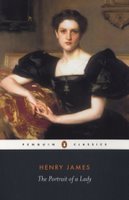 A long and enjoyable book. Isabel Archer, a young American, is taken by her aunt to Europe. Shortly thereafter, she inherits a large sum of money and then has the opportunity to choose how she desires to spend her life. Her cousin, Ralph Touchett, is sick with tuberculosis, but finds many things to enjoy in life, particularly watching Isabel to see what she will do with her life. The question of marriage (if, who, when) of course comes up, and plays a large part throughout the story. Isabel is a woman who is self-aware and a wonderful character to observe, as are many with whom she interacts.
A long and enjoyable book. Isabel Archer, a young American, is taken by her aunt to Europe. Shortly thereafter, she inherits a large sum of money and then has the opportunity to choose how she desires to spend her life. Her cousin, Ralph Touchett, is sick with tuberculosis, but finds many things to enjoy in life, particularly watching Isabel to see what she will do with her life. The question of marriage (if, who, when) of course comes up, and plays a large part throughout the story. Isabel is a woman who is self-aware and a wonderful character to observe, as are many with whom she interacts.
Before Isabel decides whom she will marry, she turns down two other suitors. One is a well-to-do American, another is an English lord, and the third whom she decides to marry is an American with distinguished taste who has lived in Italy most of his life. Those who know she turned down the first two have a hard time understanding why, especially when they learn of her final decision. In the narration, we discover that Isabel feels that this is the right decision to make - even though she does not know how to justify it to anyone but herself. Some things are simply right for now and must be done. It makes one wonder, though -- what does it mean to choose well? to love well? to be loved well? Out of Isabel's choice comes suffering for many, especially herself -- and one wonders if suffering is thus an essential part of life, and how much a part suffering has in creating people who are solid and deep.
Madame Merle is present through much of the story, as someone who is practically perfect. A Mary Poppins of Europe during this time period, if you will. Except that she has accomplished little. She has many talents and an ability to fit in and be comfortable almost anywhere -- but has little to show for it. She knows when to speak and when to be silent, how to make others aware of her presence but not uncomfortable in it, how to manipulate while seeming to be unassuming. Ralph says that she is too perfect. Too kind. Too everything. That everything about her is studied and planned. Which is true. Madame Merle is very good at pleasing people -- as long as she can still reach her own goals, of which only one is truly vital. When the reader understands this goal, everything that has been done and said can be seen in a very different light. Which is true in life too -- we think we understand someone or know why they act a certain way, and then something else happens and suddenly their motive or experiences clear the air. Sometimes for the better, and as in Madame Merle's case, sometimes for the worse. Overall, James does a marvelous job of revealing character and personality. Although it does take quite a number of pages to do so!
| Title: | The Portrait of a Lady |
|---|---|
| Author: | Henry James |
| Date published: | 1881 |
| Genre: | Fiction |
| Number of pages: | 613 |
| Notes: | recommended by lark |


0 comments:
Post a Comment